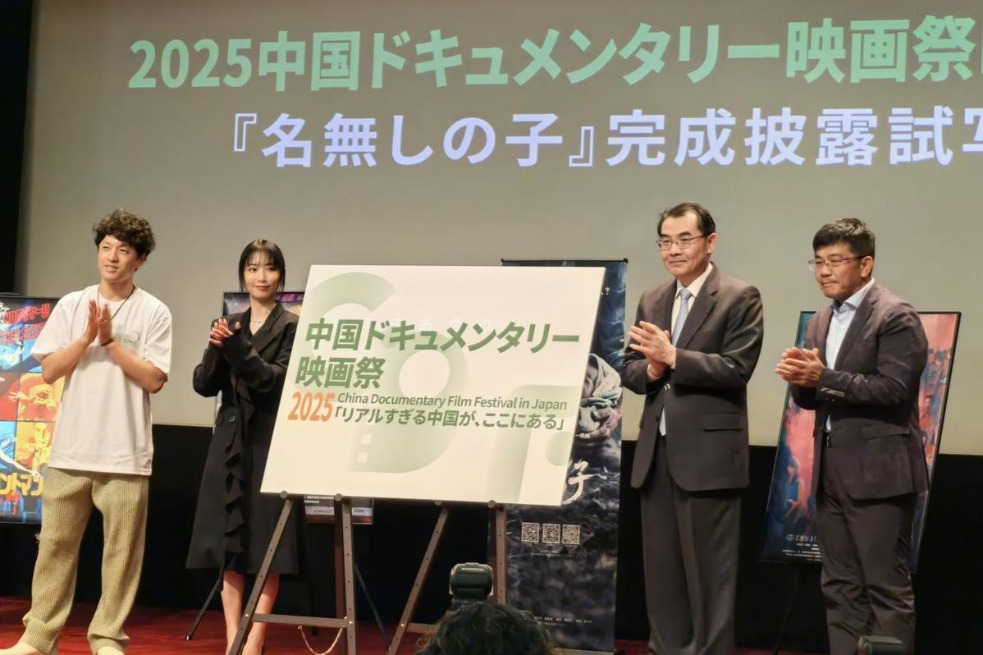TCM's role in addressing global health challenges highlighted at Thai forum


Traditional Chinese medicine can play a key role in addressing global health challenges through the integration with modern technologies, contributing to the building of a global community of health for all, a forum heard on Nov 9.
"In this era of rapid technological advancement, traditional Chinese medicine, with its millennia of wisdom ... has finally been gaining global recognition over the past decade," said Hong Kong entrepreneur Adrian Cheng Chi-kong at the opening ceremony of the "We Are The World" Bangkok 2025 – Global Biohealth, Artificial Intelligence Innovation and Traditional Medicine Fusion Cooperation Summit.
Organized by We Are The World, a nonprofit global health platform co-founded by Cheng and his partners, the event has brought together leading experts from across the world to share their expertise on a wide range of topics, from traditional Chinese medicine, biotechnology and regenerative medicine, to AI-enabled medical solutions. The event will run through Nov 11.
Noting the severe global health challenge posed by cancer and noncommunicable diseases, also known as chronic diseases, Cheng, also founder of K11 brand and Almad Group in the Hong Kong Special Administrative Region, said it has exposed the urgent need to combine TCM with advanced technologies such as biotech and regenerative medicine to provide practical solutions for the health of all.
In 2022, there were about 20 million new cancer cases and 9.7 million cancer-related deaths worldwide, according to World Health Organization statistics in 2024.
In addition, noncommunicable diseases killed at least 43 million people in 2021, with 73 percent of the deaths recorded in low and middle-income countries, the WHO said in a fact sheet in September.
"I have always believed that true progress in healthcare lies not in isolation, but in integration — of East and West, tradition and innovation, public and private sectors," said Phinij Jarusombat, former deputy prime minister and minister of public health of Thailand.
However, despite the rapid advancement of TCM, artificial intelligence, regenerative medicine and genomics, Phinij said there are still gaps between the technology and the patients who are suffering from cancer, chronic diseases, and neurodegenerative disorders.
Noting Thailand is striving to become a regional medical hub, Phinij said this needs to be achieved through cooperation.
For example, Phinij, who is also president of the Thai-Chinese Cultural Relationship Council, said Thailand's cooperation with China has already generated results in digital health, medical training, and cross-border investment.
"Just as the ancient Maritime Silk Road connected our civilizations, today we must build a new 'Health Silk Road' — one that allows knowledge, innovation, and care to flow freely," said Phinij.
Yan Lijin, chairman of the China Silk Road Group and executive vice-chairman of the Traditional Chinese Medicine Culture Congress, announced the congress collaboration with the WATW in his speech.
"This collaboration is of great significance as I believe the deep integration of TCM with biotechnology, regenerative medicine, and AI will undoubtedly become the key solution — both now and in the future — to addressing issues the entire human life cycle, from health maintenance to disease treatment," said Yan.
In particular, Yan said the key features of TCM "simple, convenient, affordable, and effective" make it a valuable supplement to healthcare systems in the local communities of less developed regions.
In developed regions, TCM can also provide more personalized alternatives in chronic disease management, rehabilitation, and integrative medicine in chronic disease.
Sharing a personal story, Michael Chin, WATW's co-founder, said TCM and acupuncture, together with regenerative medicine, helped with his hypertension and his wife's sever tinnitus.
"This experience made me kind of understand that to resolve physical health problem, we must break down the information barrier," said Chin.
Sranyoo Chanate, WATW co-organizer in Thailand and CEO of Kluaynamthai Hospital in Bangkok, said the hospital has been using traditional Thai and Chinese medicine to treat the elderly people and he believes that the integration of modern and TCM will be the future of the medicine.
Sorapoj Techakraisri, co-organizer of WATW in Thailand and founder of Thailand's Pace Development Corp, said he hopes the summit can not only provide a platform for discussion and sharing of the latest healthcare technology but also provide access to solutions to improve people's health.
































